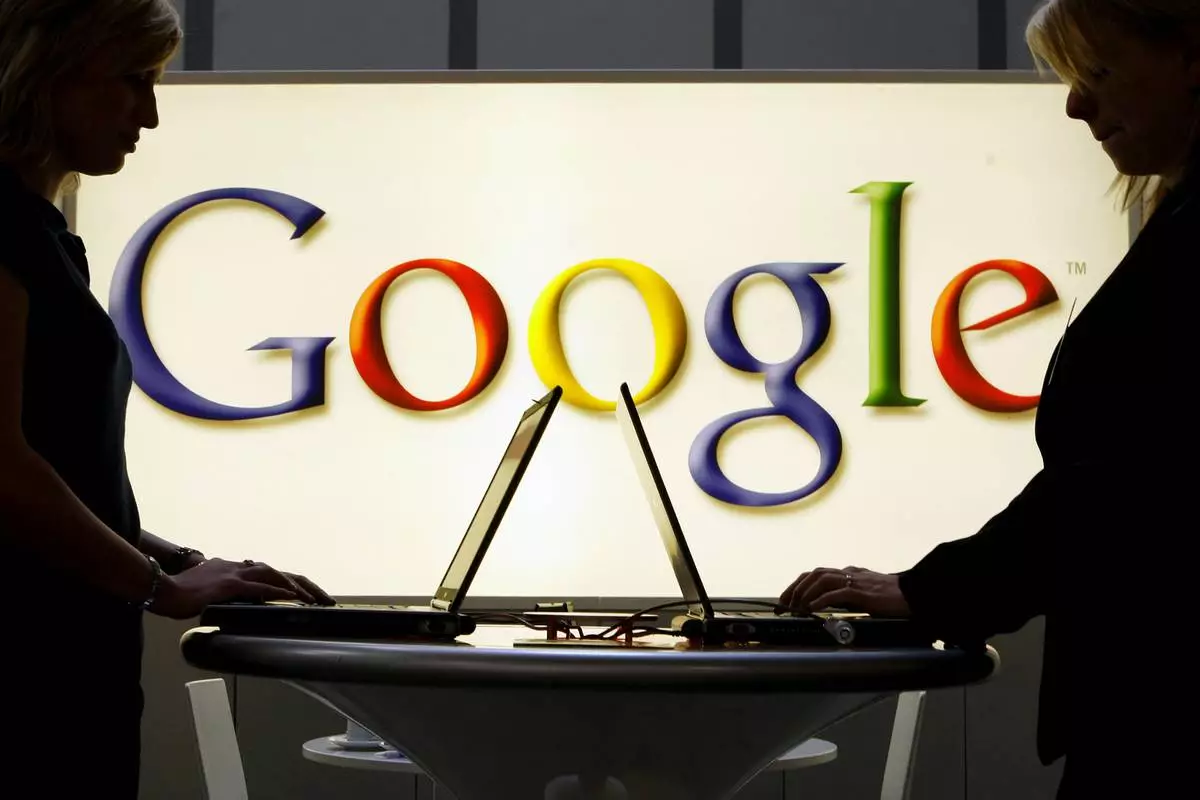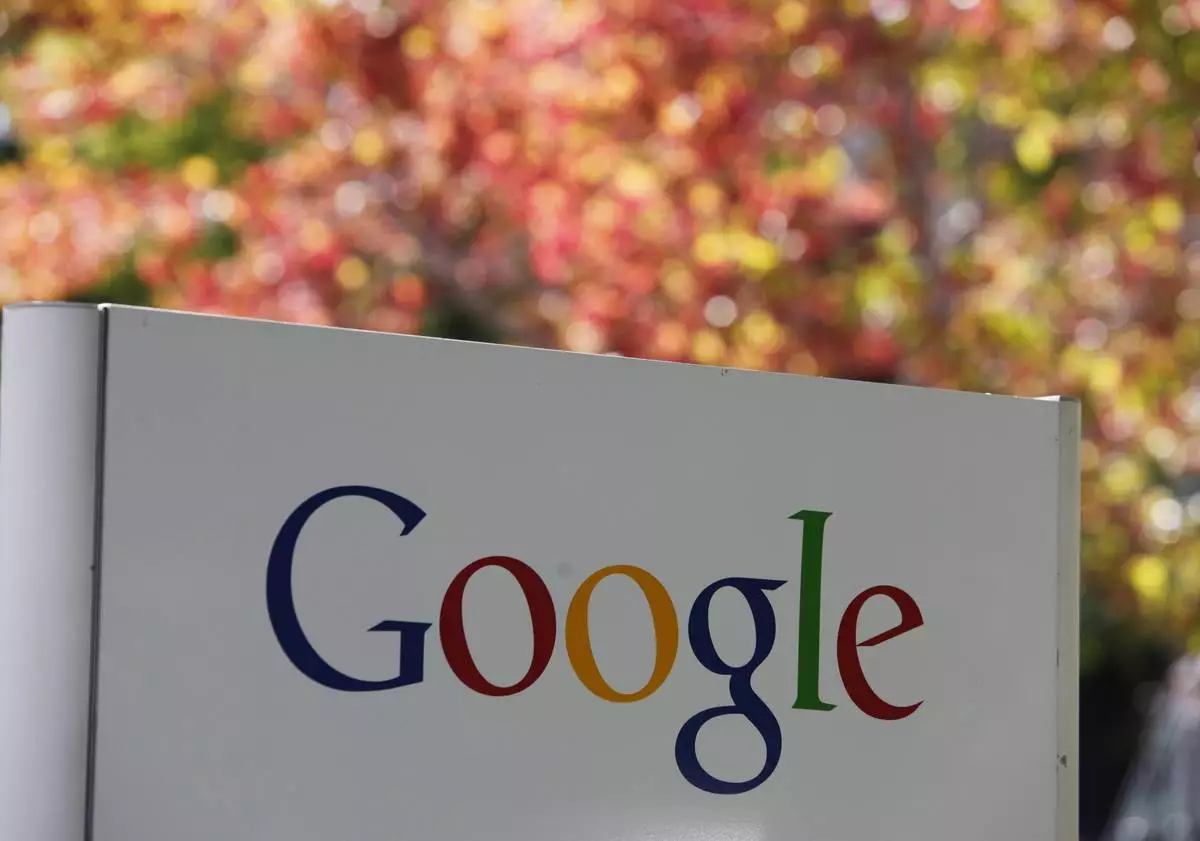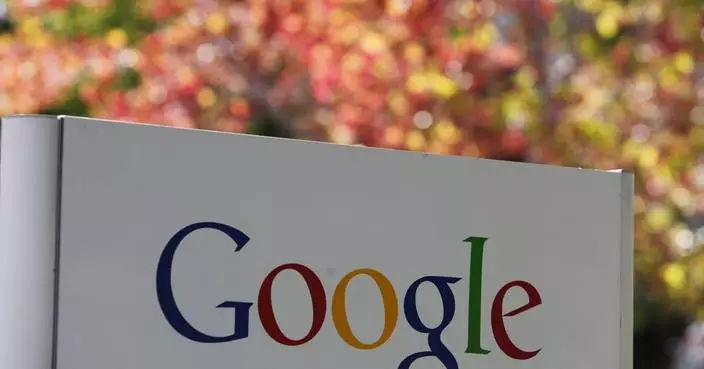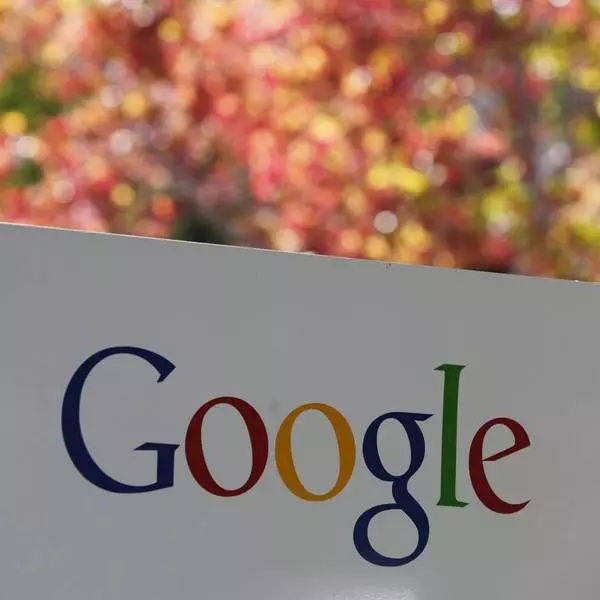ATLANTA (AP) — The federal government is making its first loan to a crystalline silicon solar plant, loaning $1.45 billion to support a South Korean company's bid to build up key parts of the solar supply chain inside the United States.
The loan from the U.S. Energy Department, announced Thursday, will be key to funding a $2.2 billion complex that Qcells, a unit of South Korea’s Hanwha Group, is building. The company plans to take polysilicon refined in Washington state and make ingots, wafers and solar cells — the building blocks of finished solar modules — in Cartersville, Georgia, northwest of Atlanta.
President Joe Biden’s Inflation Reduction Act, besides offering a extra tax credit on American-made solar equipment, lets manufacturers earn incentives for every unit of polysilicon they refine and every wafer, cell and module they make.
“This loan is special, because it’s one of the first facilities where we’re not just making modules, but we’re making cells and wafers as well," Jigar Shah, director of the Energy Department's loan programs, said in a telephone interview Wednesday with The Associated Press. "So we’re bringing a lot more of the supply chain into the United States.”
Qcells in April began assembling modules in part of the complex, which will have a capacity of 3.3 gigawatts of solar panels each year. The plant in Cartersville currently has about 750 employees and is projected to have 2,000 when complete. Qcells says it’s on track to complete the wafer and cell portions of the plant by December.
The company also has a $630 million plant in Dalton, farther northwest in Georgia, with a capacity of 5.1 gigawatts a year. That 1,800-employee plant was built without government loans. The company imports the cells for the Dalton plant.
The Cartersville plant would be the largest ingot and wafer plant built in the United States, the Energy Department said. Between the Dalton and Cartersville plants, Qcells will produce enough solar panels to power nearly 1.3 million homes per year, reducing carbon dioxide emissions from power generation.
Microsoft Corp. has contracted to buy a significant portion of the Cartersville plant’s output over eight years.
Qcells must meet certain conditions for the loan, and Marta Stoepker, a company spokesperson, said Qcells is confident that it will meet the requirements.
“The loan that we’re getting is going to be massively critical for us to stay on track with our goal of really onshoring the supply chain and making it in America,” Stoepker said.
Still, the company said the Biden administration needs to stay committed to supporting domestic solar manufacturing in the face of a continuing surge of cheap imports from Asia, which has caused solar panel prices to fall. Qcells and other manufacturers are pushing for tariffs to protect against what they say is below-cost dumping by companies in Cambodia, Malaysia, Thailand and Vietnam that have ties to China. Stoepker said the Biden administration also could help by refining guidance on the tax credit bonus for American-made solar components.
Shah defended the administration's efforts, saying supports for the industry are "providing a lot of stability for folks to invest.”
He said the United States is on track to have a reliable domestic supply chain capable of meeting most of its solar panel needs.
“The domestic demand for solar modules in 2026 is expected to be around 50 gigawatts. We’re expecting to produce about 40 gigawatts in 2026," Shah said. "So that means 80% of the modules that we deploy in the United States in 2026 is expected to be domestic.”
U.S. Sen. Jon Ossoff, a Georgia Democrat who has been the foremost cheerleader for the Biden administration's support of clean energy projects in the state, said the loan will “continue growing our economy and strengthening American energy independence.”

FILE - A Caterpillar truck is seen outside a Hanwha QCells Solar plant Oct. 16, 2023, in Cartersville, Ga. (AP Photo/Mike Stewart, File)

FILE - JLG lifts are operated outside a Hanwha QCells Solar plant Oct. 16, 2023, in Cartersville, Ga. (AP Photo/Mike Stewart, File)
LONDON (AP) — Google lost its final legal challenge on Tuesday against a European Union penalty for giving its own shopping recommendations an illegal advantage over rivals in search results, ending a long-running antitrust case that came with a whopping fine.
The European Union’s Court of Justice upheld a lower court’s decision, rejecting the company’s appeal against the 2.4 billion euro ($2.7 billion) penalty from the European Commission, the 27-nation bloc’s top antitrust enforcer.
"By today’s judgment, the Court of Justice dismisses the appeal and thus upholds the judgment of the General Court," the court said in a press release summarizing its decision.
The commission's punished the Silicon Valley giant in 2017 for unfairly directing visitors to its own Google Shopping service to the detriment of competitors. It was one of three multibillion-euro fines that the commission imposed on Google in the previous decade as Brussels started ramping up its crackdown on the tech industry.
“We are disappointed with the decision of the Court, which relates to a very specific set of facts,” Google said in a brief statement.
The company said it made changes in 2017 to comply with the commission’s decision requiring it to treat competitors equally. It started holding auctions for shopping search listings that it would bid for alongside other comparison shopping services.
“Our approach has worked successfully for more than seven years, generating billions of clicks for more than 800 comparison shopping services,” Google said.
At the same time, the company appealed the decision to the courts. But the EU General Court, the tribunal's lower section, rejected its challenge in 2021 and the Court of Justice’s adviser later recommended rejecting the appeal.
European consumer group BEUC hailed the court's decision, saying it shows how the bloc's competition law “remains highly relevant" in digital markets.
"Google harmed millions of European consumers by ensuring that rival comparison shopping services were virtually invisible," director general Agustín Reyna said. “Google’s illegal practices prevented consumers from accessing potentially cheaper prices and useful product information from rival comparison shopping services on all sorts of products, from clothes to washing machines.”
Google is still appealing the other two EU antitrust penalties, which involved its Android mobile operating system and AdSense advertising platform. The company was dealt a setback in the Android case when the EU General Court upheld the commission's 4.125 billion euro fine in a 2022 decision. Its initial appeal against a 1.49 billion euro fine in the AdSense case has yet to be decided.
Those three cases foreshadowed expanded efforts by regulators worldwide to crack down on the tech industry. The EU has since opened more investigations into Big Tech companies and drew up a new law to prevent them from cornering online markets, known as the Digital Markets Act.
European Commissioner Margrethe Vestager said that the shopping case was one of the first attempts to regulate a digital company and inspired similar efforts worldwide.
"The case was symbolic because it demonstrated even the most powerful tech companies could be held accountable. No one is above the law,” Vestager told a press briefing in Brussels.
Vestager, who's expected set to step down in October as the commissioner overseeing competition issues after 10 years on the job, said the commission will continue to open competition cases even as it enforces the Digital Markets Act. The DCA is a sweeping rulebook that forces Google and other tech giants to give consumers more choice by following a set of dos and don'ts.
Google is also now facing particular pressure over its lucrative digital advertising business from the EU, which is carrying out an investigation, and authorities elsewhere.
In a federal antitrust trial that began Monday, the U.S. Department of Justice alleges that the company holds a monopoly in the “ad tech” industry.
British competition regulators, meanwhile, accused Google last week of abusing its dominance in ad tech.

FILE - In this April 17, 2007 file photo, exhibitors work on laptop computers in front of an illuminated sign of the Google logo at the industrial fair Hannover Messe in Hanover, Germany. (AP Photo/Jens Meyer, File)

FILE - A sign at Google headquarters in Mountain View, Calif. is shown on Oct. 8, 2010. (AP Photo/Paul Sakuma, File)

Google loses final EU court appeal against 2.4 billion euro fine in antitrust shopping case

Google loses final EU court appeal against 2.4 billion euro fine in antitrust shopping case















